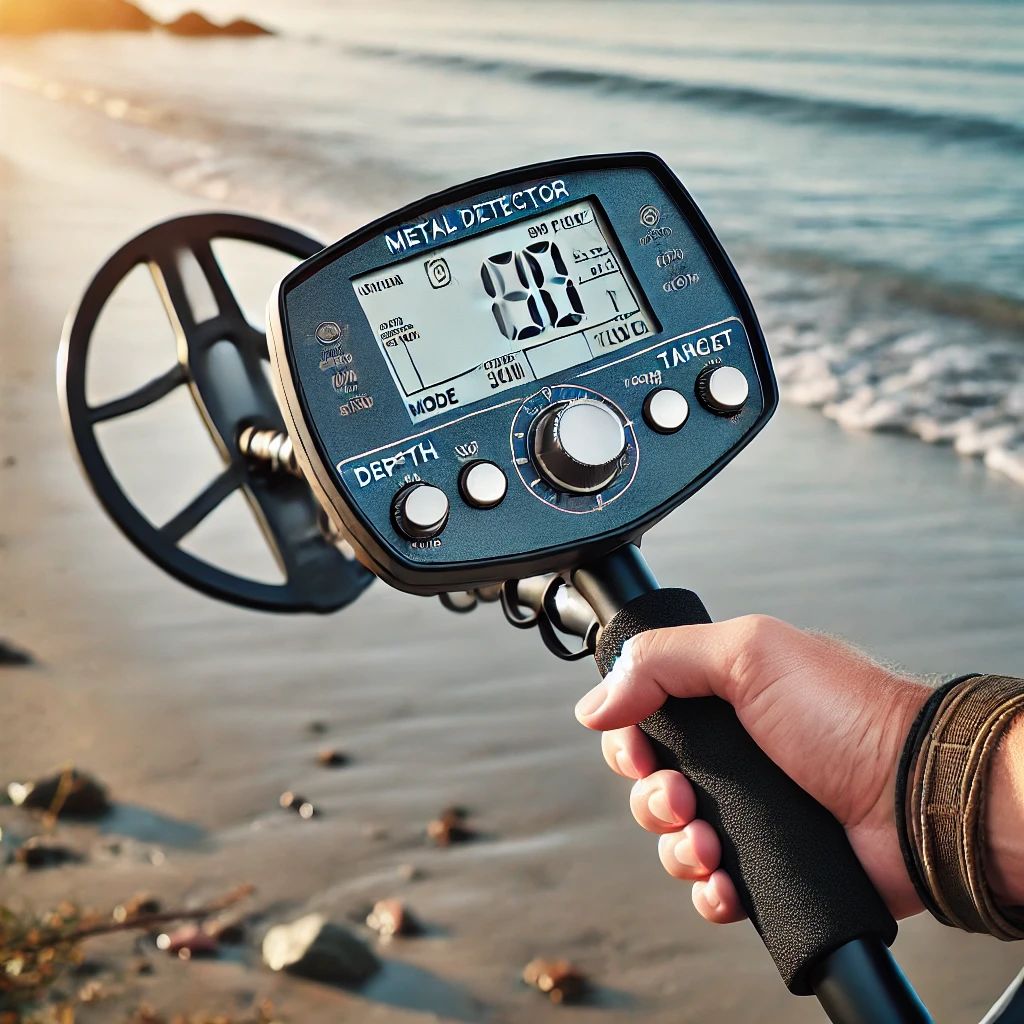The thought of finding hidden treasure, especially gold, sparks excitement in the minds of many. Metal detecting has become a popular hobby, and for beginners, the idea of striking gold can be particularly enticing. But is it possible for a beginner metal detector to find gold? In this blog post, we’ll explore the capabilities of entry-level metal detectors, what factors influence the success of finding gold, and provide recommendations for the best metal detector for beginners who want to give gold hunting a try.

Can a Beginner Metal Detector Really Find Gold?
The simple answer is yes, a beginner metal detector can find gold. However, there are several factors that will influence your success, such as the type of detector, the size and depth of the gold, and the conditions of the area you are searching in. Here’s a breakdown of what you need to know:
1. Metal Detectors and Gold Sensitivity
Not all metal detectors are designed to find gold. Gold is often found in small nuggets or flakes, and it’s a low-conductive metal, which means it can be harder to detect than higher-conductivity metals like silver or copper.
That said, some beginner-friendly metal detectors are equipped to detect gold, especially if you’re hunting in areas known for gold deposits. These detectors typically have higher operating frequencies, which help to pick up smaller objects like gold nuggets.
2. Soil Conditions and Location Matter
The chances of finding gold also depend heavily on where you are detecting. Gold is often found in mineral-rich areas like riverbeds, mountains, and old mining sites. Soil conditions can affect the detector’s performance. Highly mineralized ground, common in gold-bearing areas, can create interference, making it harder for some detectors to identify gold.
Beginner detectors with ground balance adjustment can help in these environments by reducing interference from minerals in the soil, increasing your chances of successfully detecting gold.
3. Size and Depth of Gold
The size of the gold you’re searching for and how deep it is buried also impact whether your detector will pick it up. Beginner metal detectors are generally less sensitive than high-end models and might struggle to detect small gold nuggets buried at significant depths. However, they can often find larger pieces of gold that are closer to the surface.
For beginners, targeting areas where larger gold nuggets are more likely to be found—such as shallow streams or abandoned mining sites—will increase your chances of success.
Features to Look for in the Best Metal Detector for Beginners
If you’re serious about trying to find gold, it’s important to choose the best metal detector for beginners that offers features designed for gold hunting. While some basic detectors can find coins and relics, not all are optimized for the specific challenges of finding gold. Below are key features you should prioritize when shopping for a beginner-friendly metal detector:
1. Operating Frequency
Metal detectors with higher frequencies are better at detecting small, low-conductive metals like gold. Beginner detectors usually operate in the 5-15 kHz range, but for gold hunting, you’ll want something that can reach at least 15 kHz or higher. Some beginner models offer multiple frequency settings, which can give you more flexibility depending on the type of metal you’re searching for.
2. Ground Balance
Ground balance is an essential feature for detecting gold in mineralized areas. Many gold-bearing locations have highly mineralized soil that can cause false signals. A metal detector with ground balance adjustment will help filter out these false signals, allowing the detector to focus on finding metals like gold.
There are different types of ground balance settings to look for:
- Manual Ground Balance: Allows you to manually adjust the detector based on soil conditions.
- Automatic Ground Balance: Automatically adjusts the ground balance to reduce interference, which is especially useful for beginners who are still learning how to use their detector.
3. Discrimination Settings
Discrimination refers to the detector’s ability to differentiate between types of metals. In areas rich with different kinds of metals, you’ll want a metal detector that can distinguish between valuable targets like gold and less valuable items like iron or aluminum. Having adjustable discrimination settings can help you fine-tune your detector to avoid digging up trash and focus on potential gold finds.
4. Weight and Ergonomics
As a beginner, you’ll likely be spending several hours walking and scanning the ground, so it’s important to choose a metal detector that is lightweight and comfortable to use. Look for models with adjustable shafts and cushioned grips to reduce fatigue. A detector that’s too heavy or cumbersome can quickly make your treasure hunting less enjoyable.
5. Waterproof Design
Gold is often found near water sources, such as streams, rivers, or lakes. Having a waterproof metal detector will allow you to search in shallow water without damaging your equipment. Many beginner metal detectors offer waterproof search coils, which is sufficient for detecting in wet conditions or near water, though some detectors are fully submersible for more advanced water detection.
Best Metal Detector for Beginners: Top Picks
When it comes to finding the best metal detector for beginners, there are several models that offer a good balance between affordability and functionality. Here are our top recommendations for beginner detectors that can help you find gold:
1. Fisher Gold Bug Pro
The Fisher Gold Bug Pro is one of the best entry-level detectors for gold hunting. With its high operating frequency of 19 kHz, it’s capable of detecting small gold nuggets in mineral-rich soils. It also features adjustable ground balance, making it suitable for gold prospecting in challenging environments. The lightweight design and easy-to-use controls make it perfect for beginners who are serious about finding gold.
2. Garrett AT Gold
The Garrett AT Gold is another great option for beginners who want a detector specifically designed for gold. It operates at 18 kHz and has excellent sensitivity to small gold nuggets. Its manual and automatic ground balance options make it ideal for use in mineralized soils. Additionally, the Garrett AT Gold is fully waterproof up to 10 feet, making it a great choice for searching in rivers or creeks.
3. Minelab X-TERRA 705
The Minelab X-TERRA 705 is a versatile metal detector that performs well in various detecting environments, including gold prospecting. With its adjustable frequency range and advanced ground balance settings, it can handle highly mineralized ground, increasing your chances of finding gold. Its lightweight design and intuitive interface make it easy for beginners to learn and use.
Conclusion
So, can a beginner metal detector find gold? Absolutely. With the right equipment, a basic understanding of how metal detectors work, and a little patience, beginners can find gold. The key is choosing the best metal detector for beginners that offers the features needed to detect gold in challenging environments, such as higher operating frequencies, ground balance settings, and good discrimination capabilities.
Whether you’re searching for small nuggets in rivers or larger pieces of gold near old mining sites, a well-chosen beginner metal detector will make your gold prospecting journey more rewarding. Now, it’s time to gear up, head outdoors, and start your treasure hunting adventure!

